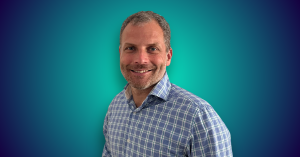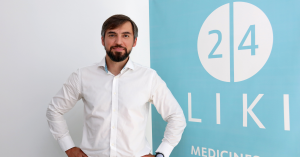Romanian-born management consultant, Vlad Gheorghiu, had his first panic attack back in December 2019. He didn’t know what he was feeling. He was not able to get out of bed and couldn’t organize his thoughts. He reached out to a psychologist to better understand what was happening.
“I was not sleeping enough and my workday was 18 hours long. It was a vicious cycle, where the only thing was work, and for whatever reason, I didn’t feel like I was doing enough, so I invested even more time in work,” Gheorghiu shares with The Recursive.
It was this experience of severe burnout that prompted him to found his startup Kyan Health, a digital health company based in Switzerland, which provides mental health and wellbeing solutions for both individuals and organizations.
The mental and emotional health vertical
Gheorghiu felt lucky to get fast access to resources, while some colleagues, who have been through similar burnouts, struggled to get the right care. “The biggest barrier to mental health is stigma,” he adds.
Due to the pandemic, mental health has become an important topic. “Venture capital funds are allocating capital to what used to be a niche part of the digital health market because they see a clear market opportunity,” Gheorghiu explains.
He points to research that 1 in 5 people suffer from undiagnosed mental health conditions, but only 10% get the help they need. “Within the studies that have emerged after the pandemic, up to 50% or 60% of the population is emotionally distressed or could lead to a burnout profile as measured by clinical skills,” Gheorghiu says.
What do employees want?
Reports show that the pandemic has had an influence on employees’ work, as well as their perception of the office. One study reveals that 1 in 4 Romanian employees witnessed higher levels of stress concerning work during the pandemic. Another study concludes that employees would work 3 out of 5 days from the office for a work-life balance. This survey shows that 88% of Romanian employees believe that offices will exist in the future, but that they need to be transformed.
Another key insight is that 40% of the participants said they want an office where they can work, but also interact, and relax. Almost 34% expect offices to resemble coworking spaces that are designed to support interaction and creative activities and 30% want access to AI technologies that can reduce repetitive daily tasks, which will allow them to focus more on relevant activities.
While employees are looking for a balance between work and personal time and companies are being open to new solutions for a better flow of communication, more and more tech startups emerge to tackle health and wellbeing issues.
Mental health startups’ solutions
Thymia, an England-based startup that has a co-founder with Greek origins, aims to spot depression with a game tool based on neuropsychology. The online platform empowers clinicians to find the right treatment in weeks instead of years, while also making the journey enjoyable for the patient.
Myhappyself is a Greek-based holistic digital tool for mental health that offers solutions both for patients, as well as therapists. The platform was created to offer personalized treatments and give access to people that cannot otherwise reach specialists due to their physical conditions.
Romanian-based Telios Care provides telemedicine services that can be included in insurance products and medical subscriptions, but also with direct sales to companies. They offer advice for different emergencies related to physical and psychical issues.
Acertivo is another Romanian MedTech startup that aims to bring emotional wellbeing closer to companies. The low-touch therapy platform targets tech teams to help with their mental fitness and work satisfaction.
As for Kyan Health, their organizational solution is made up of a robust diagnostic that helps assess employees’ distress and a toolkit for employers to restructure the office and create psychologically safe spaces.
For employees, they are developing a portal and mobile apps for iOS and Android that offer three elements:
- a self-awareness questionnaire;
- positive psychology, cognitive behavioral therapy, hypnotherapy, and meditation treatment;
- as well as a network of psychotherapists, psychologists, and coaches.
They believe they will stand out on the market beginning with September 2021 by offering these two solutions and reducing the time to find a specialist from 8 weeks to 10 days. “It just doesn’t work if you solve on the organizational part, individuals will not feel well looked after; if you solve only the individual part, they may be able to gain resilience, but when they go back to the same environment, they relapse. It is not sustainable,” Vlad Gheorghiu explains.
What is next for corporate mental health?
Vlad Gheorghiu started as a patient in 2019, but ended up a Kyan Health’s co-founder in 2021, along with Konstantin Struck as COO, and Ignacio Leonhardt as CTO. In May, the startup received 1.5M Swiss francs (almost €1.4M) pre-seed and aims to be a dominant player in Europe when it comes to corporate mental health.
“My vision for the next 10 years is to help get to parity when it comes to mental health and physical health so that you and I can talk the same way about going out and exercising or eating the right foods, as we do about speaking with a counselor and looking after our mental health,” he says.
Gheorghiu sees their biggest challenge in the fact that companies don’t allocate a budget for mental health. That is why their sales argument is about cost avoidance, how it’s easier to open up a budget than to create a new one.
“One interesting mitigation for us is that we see a lot of cost avoidance on the real estate side because companies are reducing the size of their office space. So, we see an opportunity to boost support for employees while they work remotely and that includes mental health,” Gheorghiu concludes.
Romania is on Kyan’s Health roadmap, but for now, the startup will be focusing on Switzerland, France, Germany, and the UK, as these mature markets understand the reimbursement system and individuals have more support to get personalized therapy.







